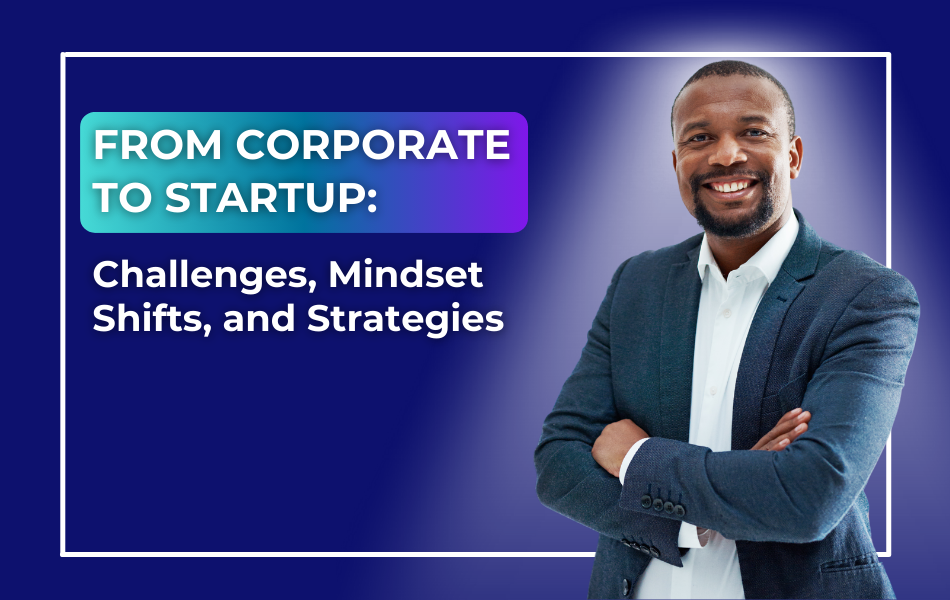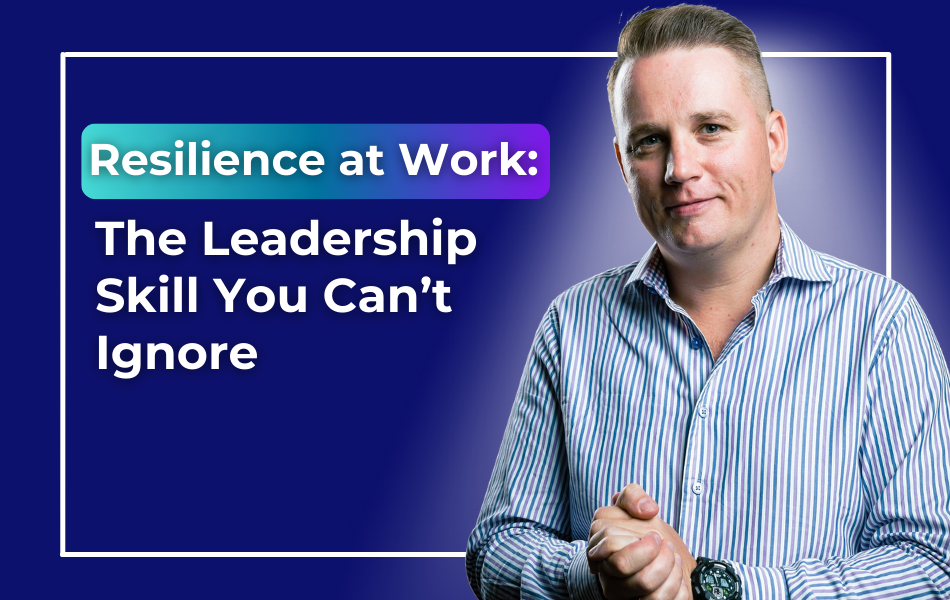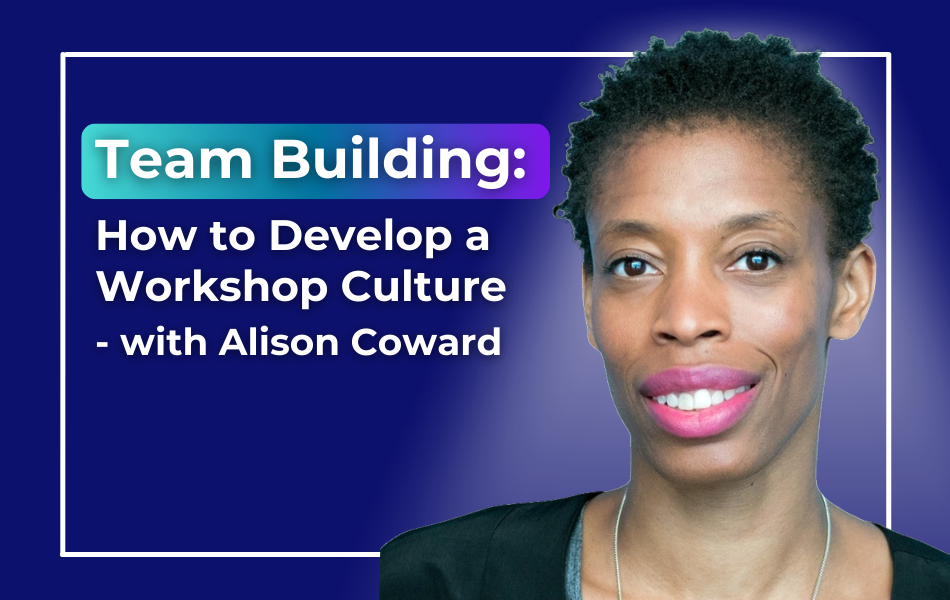29-the-two-common-blindspots-managers-have-and-how-to-overcome-them
About this Podcast
One of the biggest mistakes that I see managers make is to ignore their blindspots. We all have them but there are specific ways to uncover and overcome them.
– BY THE END OF THIS EPISODE, YOU’LL KNOW –
- The two most common blindspots I see managers have and how that holds them back in their ability to lead
- The 3 different driving values that motivate us at work at home
- How to ask for feedback in a way that actually works and gets you useful responses
- The 3 specific ways that will help you uncover your blindspots right away
RESOURCES MENTIONED
Leadership Accelerator: www.ramonashaw.com/leadership-accelerator
Cloverleaf: https://cloverleaf.me/
Marshall Goldsmith – What Got You Here Won’t Get You There: Book on Amazon
Video: Marshall Goldsmith – What Got You Here Won’t Get You There https://youtu.be/tBAG23wby5U
* Disclaimer: Shownotes may contain affiliate links. That means that I am awarded a small commission for purchases made through them, at no added cost for you.
Watch it on YouTube
Welcome back, dear listeners, to another episode of The Manager Track podcast.
Today. I want to talk about one of the biggest mistakes I see managers make in their first few years of leading people. and I consider this a big blind spot because it’s something that we don’t often talk about. It’s something that doesn’t usually get addressed in leadership trainings or in conversations or with their boss at the time of promotion or ask that navigating challenges that come with being in the role of manager.
[00:00:46] And that mistake that I see people make is when they ignore their blind spots.
[00:00:53] So here’s a good example from my first few years as a manager, I remember very vividly a conversation that I had with someone on my team. This particular person was fairly process-driven. they liked having structure. They liked having things organized and for there to be a methodology, to what we were doing. Now, I personally, I thrive off goals and I thrive of getting stuff done, and I’m not particularly good with processes. And setting up processes and structures. And the finding methodology is not something that comes easy to me or comes natural to me.
[00:01:32] And clearly that one person that I’m referring to was on the opposite spectrum of me and disregard. Now I didn’t realize at that point, that the way I was leading was very much driven by my own needs to get stuff done and to set goals and to achieve our deadlines and exceed expectations.
[00:01:52] And I did not recognize that not everyone was thriving off that same motivation. And that some people really cared for things to be organized and there to be processes. And I did not pay any attention to that because it was not important to me, which does not mean that because it’s not important to me it’s not important to other people on the team. But that simple understanding and you might be laughing thinking Ramona. Yes, that’s very obvious. But trust me in that moment, it was not obvious to me at all. I did not recognize this in my first few years as a manager.
[00:02:31] It took some time, a lot of trial and errors and it took an investment in my own leadership development for me to recognize that just because I prefer something and I like a certain way of working and I like a certain way of being managed does not at all mean that the people on my team are nor should they like it the same way or prefer to be managed the same way and be motivated by the same things.
[00:03:02] And that was a huge blind spot that caused a lot of conflict and dissatisfaction I’d say on both my part, but also on on my team members part.
[00:03:13] And now as I’m doing this work and I’m helping new managers, mid-level managers built the leadership capabilities and the confidence to have the impactful in their role and set themselves up for the next level this exact blind spot keeps coming up over and over again.
[00:03:33] So I want to take a moment to talk about it. I already alluded to the fact that just because we like something doesn’t mean other people like it too, and just because we’re motivated by something doesn’t mean others are motivated by the same things.
[00:03:45] On a high level, most of us are either predominantly motivated by structure processes and order, or by performance and results, or by people and collaboration and working with others and helping others
[00:04:02] Now we all are motivated to some extent by all three, but there’s typically one of those three aspects that are dominant. And just because your dominant driver might be performance and results does not mean that the other people on your team are driven the same way.
[00:04:22] Nor should they be driven the same way. It’s actually really good to have a diverse group working together so that you, as a team are able to bring in different strengths and considerations as well. And you’re able to leverage people’s strengths and people’s unique drivers.
[00:04:39] This is a call an invitation to you to take a step back from your day to day work of doing things, being on it, trying to be helpful, supporting your team members, stepping back from all of this and think about a few specific questions.
[00:04:54] Ask yourself what is it that I care about most? Do I care most about people, processes, and organization having things done right, or performance?
[00:05:12] Then ask yourself about every single person that you’re directly managing.
[00:05:16] Do I think that person thrives on doing things right and being organized and process-driven, do they thrive on goals and performance and results, or do they thrive and helping people and working with people? That in itself will highlight some of the things that you might not be aware of.
[00:05:34] Now his second area where blind spots come up really often is that when we think that what got us here will get us there, a term coined by Marshall Goldsmith. What this means is that things that helped us in the past be really successful are not necessarily what will help us be successful going forward.
[00:05:54] And especially if you are a new manager or in a transition, or in a career transition, which by the way, transitioning from an IC, an individual contributor into a leadership role, leading people, I believe is the most challenging and the biggest transition that you’ll ever make in your career.
[00:06:13] Because it requires such a different mindset and different toolkit and different skillset to lead versus to be an individual contributor. But that aside in any transition you are at risk of falling into a trap to think that what made you successful in the past is what makes you successful going forward.
[00:06:33] So, for example, if you like to collaborate with people and you’d like to bring everyone together to brainstorm and to think together, to come up with the best solution. As a leader, your team might start perceiving you as being indecisive because you’re constantly looking to bring people together and to collaborate.
[00:06:53] And this was great when you were an IC, when someone else could step in and say, okay, enough collaboration. This is how we’re going to do it. And you were praised for being the one who brought people together, who fostered the collaboration and the conversations. Now as a leader, more often than in the past, people will look to you to make that decision and to figure out when is it time to, to decide sooner versus later.
[00:07:17] Right? Similarly, if you are the one who always solved problems and you had to go-to person for challenging situations and issues that arise because people know that you get stuff done, and you’re the one who will take it, own it, fix it, and be a responsible and reliable that way.
[00:07:34] You probably got a lot of praise for that early in your career. As a leader, this could easily make you ineffective in your role. The reason is that now, if you still have this attitude of I can fix problems, you’re not letting your team members own the problems this could easily make you ineffective in your role because now you’re not letting your team members own the problem and own the solution. Instead, you’ve now created this dependency and you’ve trained them basically that every time there’s a problem, that you’re the one who’s going to step in and fix it.
[00:08:10] That will keep you stuck in your role. That will keep your team members stuck, where they’re at will not help you elevate reach a higher level, become more strategic, and it will also not elevate and grow your team members along the way. So that’s a very common trap that I see all the time.
[00:08:29] There are a few more areas where blind spots cannot occur, which by the way, investing in a leadership development program, like the Leadership Accelerator, which side note, is about to close doors in November. So, if you’re interested to learn more, then head on over to Ramonashaw.com/leadership-accelerator
[00:08:48] in this program, we have a number of tools to help you uncover your blind spots so that you have your eyes wide open and you know what to do and how to get more impactful at work.
[00:09:01] But for the sake of this podcast, I really want to focus on these two things. Number one, the blind spot that happens when we think that the way we like to be led, what we appreciate about our managers is what our team members appreciate about us or that we think that what motivates us is also what motivates others.
[00:09:19] The second area that leads to blind spots is when we think that what got us here will get us there. Now if you’re not ready to invest in coaching and training to support your leadership growth, then there’s still a few ways that you can start this process of uncovering blind spots.
[00:09:36] Number one, ask your team members what really drives them, ask them what they care about most, what they like most about their job, what what’s most satisfying to them, what’s most exciting to them, what they want to learn more about. Ask them what they dislike, ask them where they think they have room to grow. B curious and investigate and have those conversations with them to get to know them, their preferences and their motivations.
[00:10:04] You can also ask specific questions, for example, if you’re not sure if you’re delegating while or if you’re delegating enough, or if you’re not sure if you’re giving feedback while, or if you’re giving feedback enough and praise enough, choose a specific topic.
[00:10:19] Okay. And I’m saying specific because don’t just ask “Hey, do you have any feedback for me?” Because the chances that someone will say “Oh, actually yes, this has been on top of my mind” is very low. So you can ask a very specific question and then also don’t ask for feedback, but ask for suggestions.
[00:10:35] So let’s see how this would sound. You could ask for example “Hey, I want to get better at delegating and I’d love your suggestions. When you think of the amount of work that I delegate to you, do you think I’m delegating too much? Do you think I’m delegating too little? Do you have any suggestions on how I could delegate better to you to help you be more successful when you execute the tasks? Do you have any suggestions in the way we check in that would make it easier for us to communicate, especially in a remote world.”
[00:11:05] And if you’re inquiring about feedback, you could say “you know, one of the things that I’m looking to get better at is giving you more direct and frequent feedback. Is there a particular preference and how you like to receive feedback? Do you have any suggestions for me and how and when and how often I give you feedback? Am I giving you enough? Am I giving you too much? I’m really curious to hear your opinion because that will help me learn and get better in this area.”
[00:11:32] Being vulnerable that way, by the way, will not make you look weak. It makes you look like a human who has room to grow and is keen to grow. And with that in mind, you’re simply being a role model because you’re demonstrating, hey, we all are humans. We all got ways to grow and learn, and this is one way that I want to grow. And I’m actually curious to hear your suggestions, because you were on the receiving end of this scale. So I’d like to hear from you.
[00:11:58] So that’s the way that you can bring this to your team and ask and get specific forward-looking feedback. And another way that you can do this is by taking an assessment and they don’t need to cost a whole lot.
[00:12:12] A bonus that I give to all my clients is access to the Cloverleaf platform. That Cloverleaf is a platform that includes a bunch of different assessments, such as the Myers-Briggs, the Enneagram or DISC, and just doing this work and building yourself awareness through assessments can really help in, in reflecting on how you show up at work and how you might make assumptions about others. Just based what your preferences when that’s actually not the case.
[00:12:41] So invest in having conversations with the people around you and invest in your own self-awareness by taking some personality type assessments or leadership competence assessments.
[00:12:51] If you want to learn more about how to do that ping me, sent me a message at ramona@ramonashaw.com. I’d be more than happy to hook you up and get you started on this process. If you want to learn more about the Leadership Accelerator as a program for managers in their first three years of leading people then head on over to ramonashaw.com/leadership-accelerator and I’m emphasizing this because we’re about to kick off November groups. So, this is the time to make that investment. There’s no better time than right now to make that commitment to yourself and to your team because your team needs you now more than ever.
[00:13:32] Plus it will help you advance faster and the skills and the tools that you will learn will help you and serve you for the rest of your career.
[00:13:40] Now of course I can’t want this more than you want it. I’m just shouting from the rooftop because I’m such a strong believer in this program, in this work, I see results over and over and over again, how people drastically change and improve the way that they lead and it changes the trajectory of their career.
[00:13:58] So clearly, I’m very passionate about this. If there’s any bit of curiosity that you have about how this could possibly help you I’m all about helping you make the right decision for you right now.
[00:14:11] And to conclude this episode, this truly is an invitation and planting a seed for thought that there are things that, you know, you know, for example, you know how to download a podcast clearly you know you know, how to tie your shoes, things like that.
[00:14:28] Do you know how to do the stuff at work that you know, you’re capable of. And then there are things that, you know, you don’t know. Languages that, you know, you can speak certain technical things, for example, I don’t know how to build a TV. There are things I know I don’t know.
[00:14:42] And then there is a huge chunk of the knowledge that I don’t know that I don’t know. It. And the only way to tap into this dark area where all the things that I don’t know, that I don’t know is by inquiring asking those questions and exposing yourself to new ideas and new trainings, new frameworks that you didn’t know existed.
[00:15:07] And when you tap in this area of all the things that you don’t know that you don’t know, that’s where real growth happens. This is where you accelerate your career, your impact, your courage, your confidence, and all of those amazing things, that serve you significantly at work, but also in your private life too. This is my invitation for you this week and I can’t wait to be back next week with another episode of The Manager Track podcast.
[00:15:36] I’ll see you then.







